School of Common Knowledge 2024
School of Common Knowledge draws on the network, knowledge and experience of the L’Internationale museum confederation. Built on the basis laid by the Glossary of Common Knowledge, a project initiated by Zdenka Badovinac and Moderna Galerija in Ljubljana, it continues its co-learning methodology. Its ambition is to be both nomadic and situated, looking at specific cultural and geopolitical situations while exploring their relations and interdependencies with the rest of the world.
The pilot programme taking place in Zagreb and Ljubljana 24–29 May, 2024, speaks from central Europe and the western Balkans seeking to co-learn how to resist and transform the alliance of neo-liberal and neo-fascist forces in today’s world. The region has created and sustained specific ways of responding to and against globalisation and political hegemonies, as well as alternative ways of engaging with other parts of the world. Unique social models and imaginaries developed here, together with the region’s particular relations to coloniality and imperiality, are useful to reconsider in the light of present conflicts. Having access to the collections of the Museum of Contemporary Art in Zagreb and Moderna Galerija in Ljubljana, which largely contain works by artists from the Balkans and the wider Eastern European region, as well as addressing the social and political histories of the socialist Yugoslavia and the Non-Aligned Movement, the programme offers ways to explore decolonisation, anti-fascist struggles and anti-war narratives through the voices and experiences of artists and cultural workers grounded in decolonial practices. Situated organisations and individuals from the Balkan region will narrate their practices of cultural production and the possibilities that emerge from them. Insisting on collaborative learning, the SCK will build a small temporary community that can learn to trust and antagonise each other through exchange and shared experiences.
Participants
Marta Agičić
Ana Martina Bakić
Christophe Barbeau
Bengisu Çağlayan
Marisa Cortright
Jose Mari B. Cuartero
Nevena Delić
Bianca Dentellato
Alessandra Franetovich
Oksana Karpovets
Masa Nazzal & Leandro Navarro-Cabanas
Jolanta Nowaczyk
Esra Oskay
Agnese Politi
Denise Pollini
Lucas Pretti
Ares Shporta
Antonela Solenički
Antonina Stebur
Krisztián Gábor Török
Marianna Tsionki
Takuya Tsutsumi
Annosh Urbanke
Maria Veits
Sofia Victorino
Erin Wilkerson
Anna Zsoldos
L’Internationale members:
Nick Aikens, L’Internationale
Zdenka Badovinac, SCK curator
Marco Baravalle, IRI, Venezia
Manuel Borja Villel, L’Internationale Association
Sara Buraya Bonet, Reina Sofia, Madrid
Charles Esche, Van Abbemuseum, Eindhoven
Sabel Gavaldon, MACBA, Barcelona
Jasna Jakšić, MSU, Zagreb
Magda Lipska, MSN, Warszawa
Bojana Piškur, MG+MSUM, Ljubljana
Martin Pogačar, ZRC SAZU, Ljubljana
Ana Škegro, MSU, Zagreb
Mabel Tapia, L’Internationale Association
Adela Železnik, MG+MSUM, Ljubljana
Guests:
Deja Bečaj, Božidar Jakac Art Museum
Miha Colner, Božidar Jakac Art Museum
Urška Jurman, Igor Zabel Society
Mia Lerm-Hayes, University of Amsterdam
Goran Milovanović, Director, Božidar Jakac Art Museum
Situated Organisations:
Sezgin Boynik, Pykë-Presje, Prizren
BLOK, Zagreb (Ana Kutleša)
Irfan Hošić, University of Bihać / KRAK Center
Krater, Ljubljana (Danica Sretenović & Gaja Mežnarić Osole)
Goran Milovanovič, Galerija Božidar Jakac, Kostanjevica na Krki
Natalija Vujošević, Museum of Contemporary Art of Montenegro, Podgorica
Lala Raščić, Crvena, Sarajevo
What, How and for Whom / WHW (Sabina Sabolović)
Živi atelje DK, Zagreb (Cyrille Cartier, Saša Kralj)
Keynotes:
Leonida Kovač
Tomaž Mastnak
Ovidiu Ţichindeleanu
Special tour:
Beti Žerovc
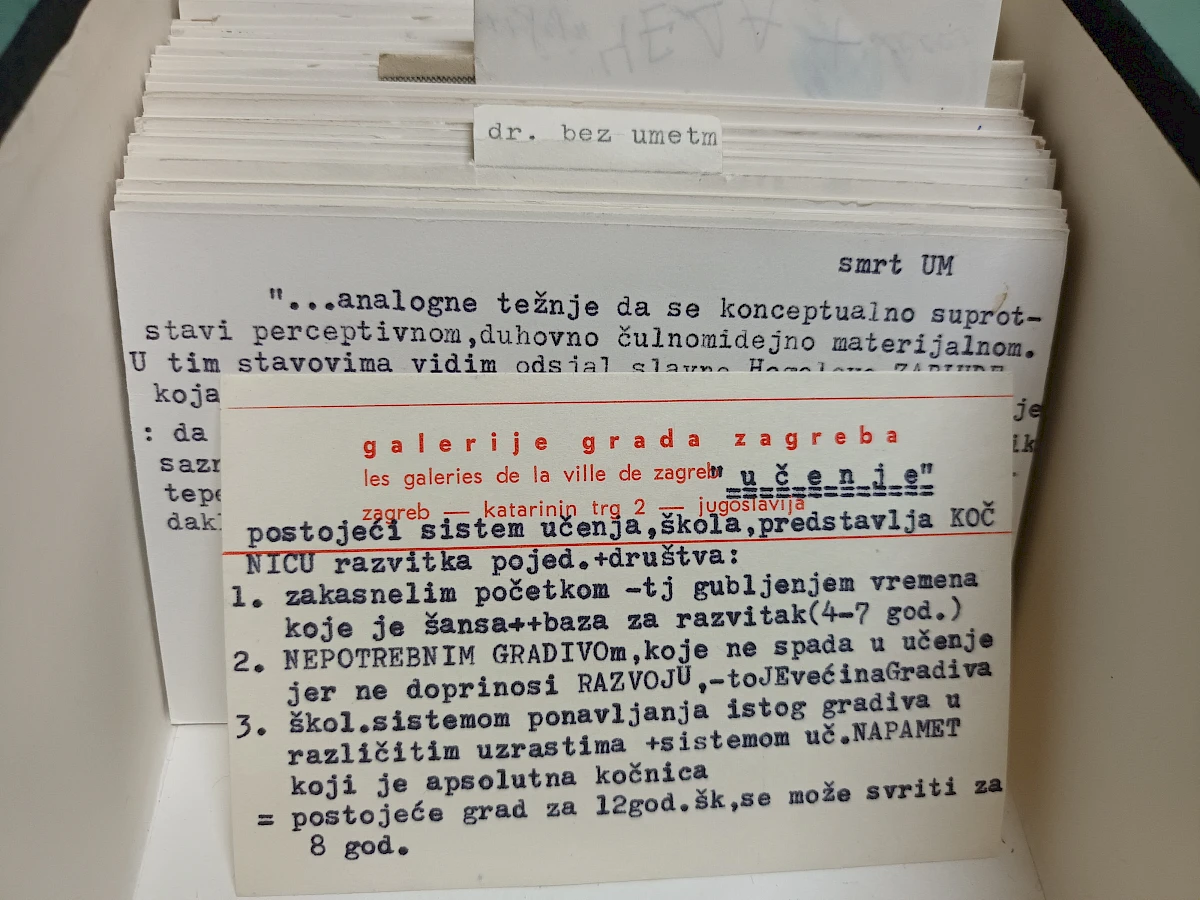
Dimitirije Bašičević Mangelos, Notes, 1970s. Courtesy of Mario Bruketa and Museum of Contemporary Art Zagreb
Related activities
-
–tranzit.ro
Non-Western Technologies for the Good Life
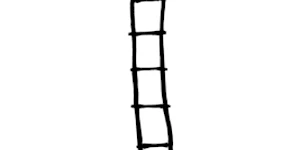
The experimental course ‘Non-Western Technologies for the Good Life’ (November 2023–May 2024) celebrates as its starting point the anniversary of 50 years since the publication of Tools for Conviviality, considering that Ivan Illich’s call is as relevant as ever.
-
Institute of Radical ImaginationMSU Zagreb
Red, Green, Black and White
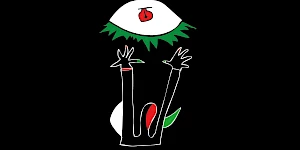
A performative inquiry by Institute of Radical Imagination and MSU Zagreb
-
–Moderna galerijaZRC SAZU
Summer School: Our Many Easts
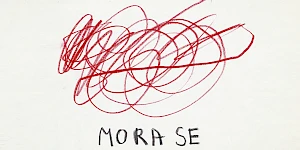
Our Many Easts summer school is organised by Moderna galerija in Ljubljana in partnership with ZRC SAZU (the Research Centre of the Slovenian Academy of Sciences and Arts) as part of the L’Internationale project Museum of the Commons.
-
–Moderna galerijaZRC SAZU
Open Call – Summer School: Our Many Easts

Our Many Easts summer school takes place in Ljubljana 24–30 August and the application deadline is 15 March. Courses will be held in English and cover topics such as the legacy of the Eastern European avant-gardes, archives as tools of emancipation, the new “non-aligned” networks, art in times of conflict and war, ecology and the environment.
-
–MSU ZagrebVan AbbemuseumModerna galerijaZRC SAZU
Open Call – School of Common Knowledge 2024
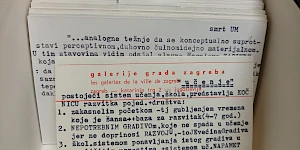
MSU (Zagreb), Van Abbemuseum (Eindhoven), MG+MSUM (Ljubljana), ZRC SAZU (Ljubljana) and L'Internationale invite applications for the new School of Common Knowledge (SCK) to be held in Zagreb and Ljubljana 24–29 May 2024. The School of Common Knowledge draws on the network, knowledge and experience of the L’Internationale museum confederation. Its ambition is to be both nomadic and situated, looking at specific cultural and geopolitical situations while exploring their relations and interdependencies with the rest of the world. The SCK is built on the basis laid by the Glossary of Common Knowledge project initiated by Zdenka Badovinac and Moderna galerija (Ljubljana) and continues its co-learning methodology.
-
–MSU ZagrebModerna galerijaZRC SAZU
School of Common Knowledge 2024

School of Common Knowledge draws on the network, knowledge and experience of the L’Internationale museum confederation. Built on the basis laid by the Glossary of Common Knowledge, a project initiated by Zdenka Badovinac and Moderna Galerija in Ljubljana, it continues its co-learning methodology. Its ambition is to be both nomadic and situated, looking at specific cultural and geopolitical situations while exploring their relations and interdependencies with the rest of the world.
-
Moderna galerija
Book Launch: Collective Study in Times of Emergency, Ljubljana
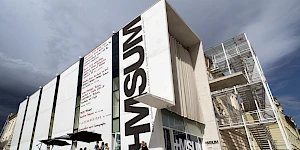
with Nick Aikens (L'Internationale Online / HDK-Valand), Bojana Piškur (MG+MSUM) and Martin Pogačar (ZRC SAZU)
-
–Museo Reina SofiaMACBA
Open Call – School of Common Knowledge 2025
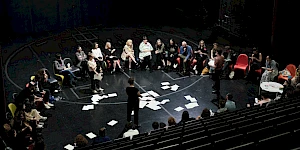
Museo Reina Sofía and MACBA Museu d’Art Contemporani de Barcelona (MACBA) invite applications for the 2025 iteration of the School of Common Knowledge, which will take place in Madrid and Barcelona 11-16 November 2025. The School of Common Knowledge (SCK) draws on the network, knowledge and experience of L’Internationale. Its ambition is to be both nomadic and situated, looking at specific cultural and geopolitical situations while exploring their relations and interdependencies with the rest of the world. This year, the SCK program focuses on the contested and dynamic notions of rooting and uprooting in the framework of present – colonial, migrant, situated, and ecological – complexities. Building on the legacy of the Glossary of Common Knowledge and the current European program Museum of the Commons, the SCK invites participants to reflect on the power of language to shape our understanding of art and society through a co-learning methodology.
-
–IMMANCAD
Summer School: Landscape (post) Conflict
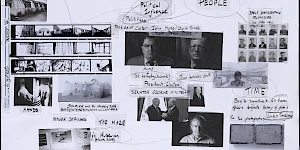
The Irish Museum of Modern Art and the National College of Art and Design, as part of L’internationale Museum of the Commons, is hosting a Summer School in Dublin between 7-11 July 2025. This week-long programme of lectures, discussions, workshops and excursions will focus on the theme of Landscape (post) Conflict and will feature a number of national and international artists, theorists and educators including Jill Jarvis, Amanda Dunsmore, Yazan Kahlili, Zdenka Badovinac, Marielle MacLeman, Léann Herlihy, Slinko, Clodagh Emoe, Odessa Warren and Clare Bell.
Related contributions and publications
-
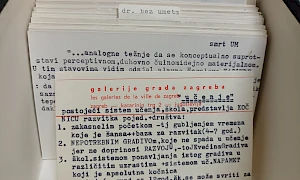
Reading list: School of Common Knowledge 2024
School of Common KnowledgeSchoolsSituated OrganizationsMSU ZagrebModerna galerijaZRC SAZU -
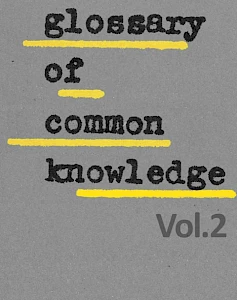
Glossary of Common Knowledge, Vol. 2
Schools -
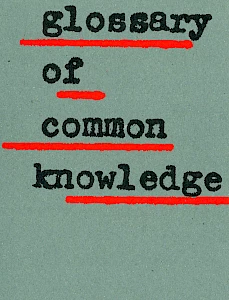
Glossary of Common Knowledge
Schools -
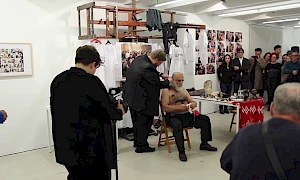
Performances from the opening of The Heritage of 1989. Case Study: The Second Yugoslav Documents Exhibition
Jusuf Hadžifejzović, Azra Akšamija, Ilija ŠoškićDialoguesModerna galerija -
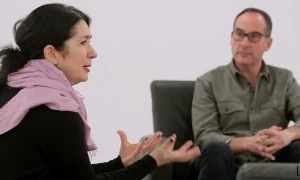
Epistemologies of the South
Zdenka Badovinac, Jesús Carrillo, Patrick FloresDialoguesModerna galerija -
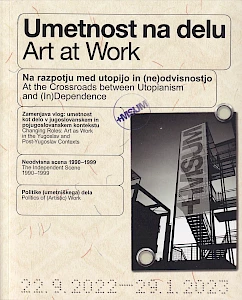
Art at Work – At the Crossroads between Utopianism and (In)Dependence
Moderna galerija -
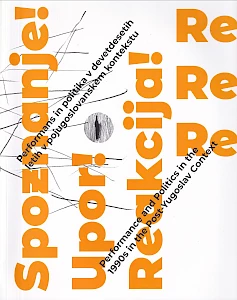
Realize! Resist! React! – Performance and Politics in the 1990s in the Post-Yugoslav Context
Moderna galerija -
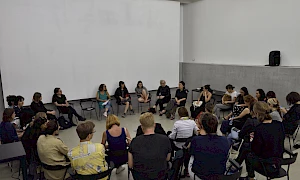
»We should never abandon the possibility of our active presence«
Zdenka Badovinac, Ieva Astahovska, Bermet Borubaeva, Darja Filippova, Nika Ham, Dorota Michalska, Radek Przedpełski, Ekaterina VorontsovaModerna galerija -
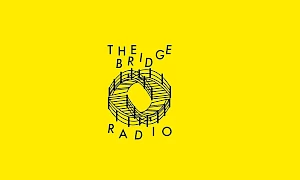
Our Movements Are Loud
Bridge RadioModerna galerijaHDK-Valand -
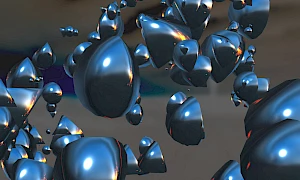
Tuning, Bias, and the Wild Beyond
Nora Akawi, Khyam AllamiModerna galerijaHDK-Valand -
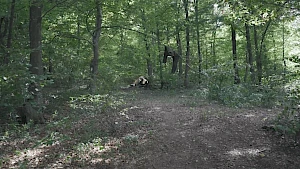
Newsreel 65 – “We have too much things in heart…”
Moderna galerija -
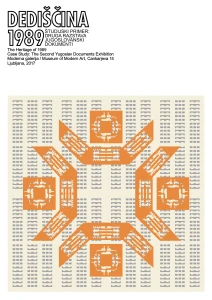
The Heritage of 1989. Case Study: The Second Yugoslav Documents Exhibition
Moderna galerija -
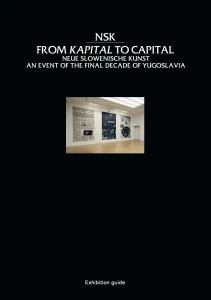
From Kapital to Capital. Neue Slowenische Kunst – an Event of the Final Decade of Yugoslavia
Moderna galerija -
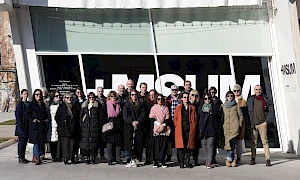
Museums under Political Control
Workers from Moderna galerijaModerna galerija -
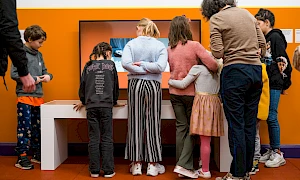
Towards Collective Learning, or, Decompartmentalizing Education
María Berríos, Fran MM Cabeza de Vaca, Yolande Zola Zoli van der Heide, Nick AikensSchoolsSituated Organizations -
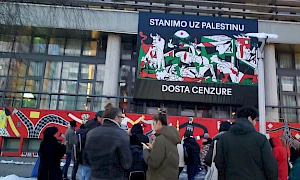
The Silence Has Been Unfolding For Too Long
The Free Palestine Initiative CroatiaInternationalismsPast in the PresentSituated OrganizationsInstitute of Radical ImaginationMSU Zagreb -
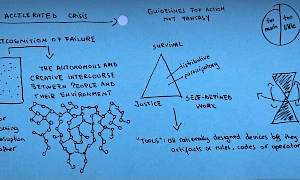
Dispatch: Harvesting Non-Western Epistemologies (ongoing)
Adelina LuftLand RelationsSchoolsClimatetranzit.ro -
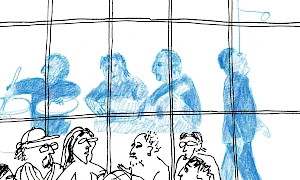
Dispatch: From the Eleventh Session of Non-Western Technologies for the Good Life
Ana KunLand RelationsSchoolstranzit.ro -

War, Peace and Image Politics: Part 1, Who Has a Right to These Images?
Jelena VesićInternationalismsPast in the PresentZRC SAZU -
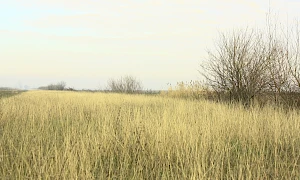
Dispatch: Practicing Conviviality
Ana BarbuClimateSchoolsLand Relationstranzit.ro -
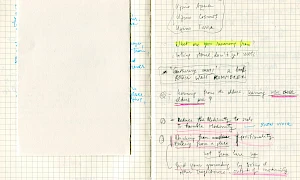
Dispatch: Notes on Separation and Conviviality
Raluca PopaLand RelationsSchoolsSituated OrganizationsClimatetranzit.ro -
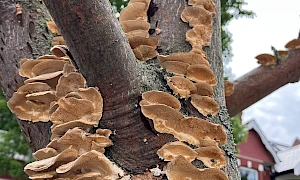
Dispatch: A Shared Dialogue
Irina Botea Bucan, Jon DeanLand RelationsSchoolsClimatetranzit.ro -
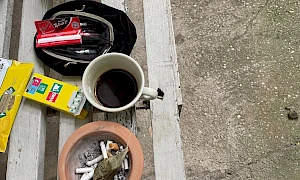
Dispatch: In between the lessons. Staying together in uncertain times, laughing in the face of trouble, and disobeying; the future belongs to us
Antonela SoleničkiSchoolsSituated OrganizationsMSU ZagrebModerna galerijaZRC SAZU -
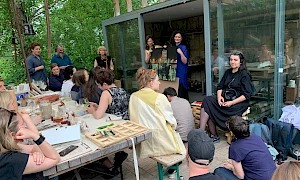
Dispatch: The Commonsverse and Situated Organisations – or why the era of big institutions will come to an end
Denise PolliniSchoolsSituated OrganizationsMSU ZagrebModerna galerijaZRC SAZU -
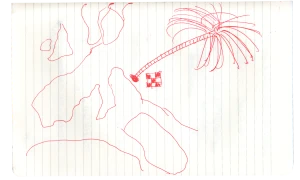
Dispatch: A Buriti Tree
Lucas PrettiSchoolsSituated OrganizationsMSU ZagrebModerna galerijaZRC SAZU -
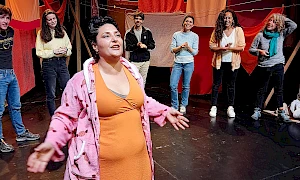
Poner el nombre a una causa en tierra extraña
Dagmary Olívar Graterol, Paola de la Vega VelasteguiEN esSchoolsSituated OrganizationsMuseo Reina Sofia -
Dispatch: To whom it may concern – the voice of the censor and re-calibrating words as an act of survival
AnonymousSchoolsSituated OrganizationsMSU ZagrebModerna galerijaZRC SAZU -
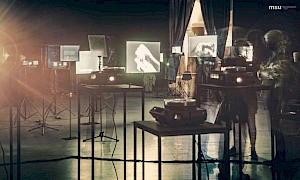
Rethinking Comradeship from a Feminist Position
Leonida KovačSchoolsInternationalismsSituated OrganizationsMSU ZagrebModerna galerijaZRC SAZU -
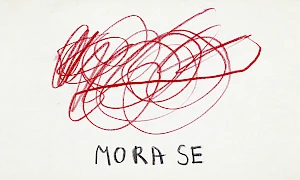
Reading list - Summer School: Our Many Easts
Summer School - Our Many EastsSchoolsPast in the PresentModerna galerija -
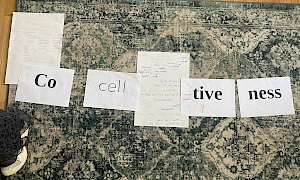
Dispatch: ‘I don't believe in revolution, but sometimes I get in the spirit.’
Megan HoetgerSchoolsPast in the Present -
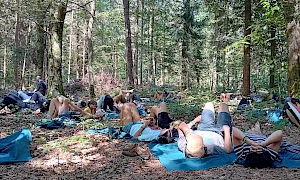
Dispatch: Notes on (de)growth from the fragments of Yugoslavia's former alliances
Ava ZevopSchoolsPast in the Present -
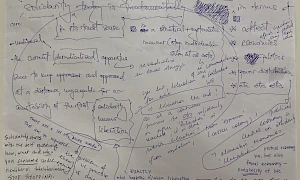
Dispatch: A Silent Conversation
Anela DumonjićSchoolsModerna galerija -
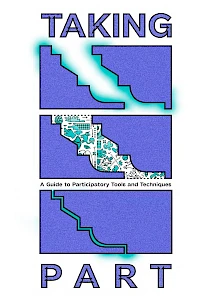
Taking Part. A Guide to Participatory Tools and Techniques
EN esSchoolsSituated OrganizationsMuseo Reina Sofia -

Atención: participar en el Museo de los Comunes
Fran MM Cabeza de VacaEN esSchoolsSituated Organizations -
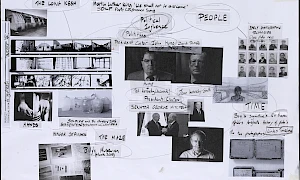
Reading List: Summer School, Landscape (post) Conflict
Summer School - Landscape (post) ConflictSchoolsLand RelationsPast in the PresentIMMANCAD -
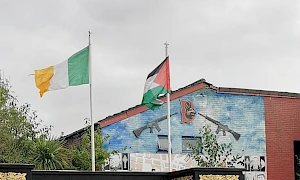
Dispatch: Reenacting the loop. Notes on conflict and historiography
Giulia TerralavoroSchoolsLand RelationsIMMANCAD -
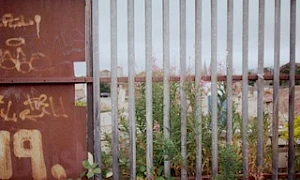
Dispatch: Haunting, cataloging and the phenomena of disintegration
Coco GoranSchoolsLand RelationsIMMANCAD -
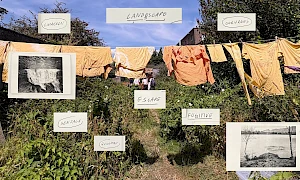
Dispatch: Landescape - bending words or what a new terminology on post-conflict could be
Amanda CarneiroSchoolsLand RelationsIMMANCAD